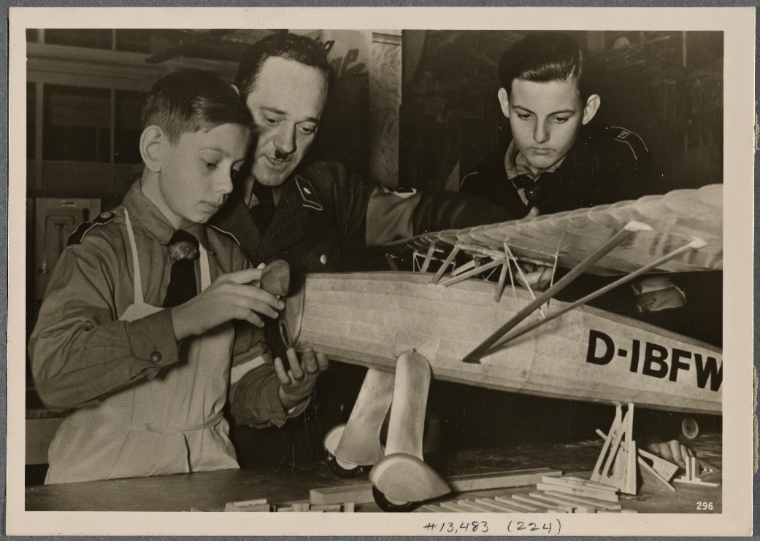Drones, Information and the Right to Know: FOI Day at NYPL, April 3, 2013
 Of what concern are drones to librarians and other information professionals? I mean those drones, scions of the remote-control model airplanes of a more innocent age — now grown up and more sinister and troublesome than anyone might have predicted in their youth (or might they?)
Of what concern are drones to librarians and other information professionals? I mean those drones, scions of the remote-control model airplanes of a more innocent age — now grown up and more sinister and troublesome than anyone might have predicted in their youth (or might they?)
The use of drones in the area of national security, not to mention law enforcement generally, has emerged as a hot topic recently. The topic isn't new of course. Nevertheless, the discussion has begun to heat up, with concerns expressed by some of our elected officials, among others.
And what should we librarians be concerned about here? Besides the obvious concerns raised by the secrecy, and the considerable lack of information and oversight, of various governmental programs (euphemism alert!) much in the news, there are other topics raised by the use of drones as information gatherers and the public's right to access that information.
![Washington, D.C., public schools go to war.,[African American schoolchildren holding model airplanes and learning types of fighter planes during their civil defense class.], Digital ID 1260420, New York Public Library Washington, D.C., public schools go to war.,[African American schoolchildren holding model airplanes and learning types of fighter planes during their civil defense class.], Digital ID 1260420, New York Public Library](https://images.nypl.org/?id=1260420&t=w)
Malcolm Byrne has worked at the National Security Archive since 1986, and since 1990 has supervised the research process of identifying and obtaining documentation for the Archive's collections. He currently directs the Openness in Russia and Eastern Europe Project, and the U.S.-Iran Relations Project, both of which promote multinational and multi-archival approaches to the study of recent, controversial historical events.
His co-authored/edited books include The Chronology (Warner Books, 1987), The Iran-Contra Scandal: The Declassified History (The New Press, 1993), The 1956 Hungarian Revolution: A History in Documents (CEU Press, 2002), the award-winning Mohammad Mosaddeq and the 1953 Coup in Iran (Syracuse, 2004), A Cardboard Castle? An Inside History of the Warsaw Pact, 1955-1991 (CEU Press, 2005), and most recently, Becoming Enemies: U.S.-Iran Relations and the Iran-Iraq War, 1979-1988 (Rowman & Littlefield, 2012). He is editor of the award-winning "National Security Archive Cold War Reader" series through CEU Press and co-editor of the Archive's microfiche publication series through ProQuest. His articles and book reviews have been published in the Harvard Journal of Cold War Studies, Iranian Studies, Middle East Report, Dissent, Beirut Review, The New York Times, The Washington Post, Moscow Times, and elsewhere. He has appeared frequently on national television and radio broadcasts. He is a graduate of Tufts University and earned his M.A. in Soviet studies and economics at Johns Hopkins/SAIS.

Read E-Books with SimplyE
 With your library card, it's easier than ever to choose from more than 300,000 e-books on SimplyE, The New York Public Library's free e-reader app. Gain access to digital resources for all ages, including e-books, audiobooks, databases, and more.
With your library card, it's easier than ever to choose from more than 300,000 e-books on SimplyE, The New York Public Library's free e-reader app. Gain access to digital resources for all ages, including e-books, audiobooks, databases, and more.
If you don’t have an NYPL library card, New York State residents can apply for a digital card online or through SimplyE (available on the App Store or Google Play).
Need more help? Read our guide to using SimplyE.